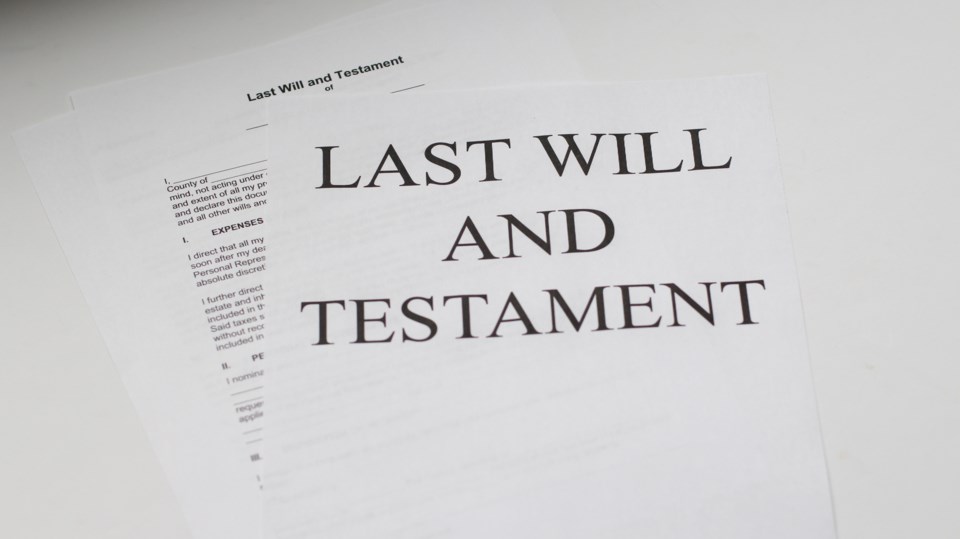Editor's note: This story was originally published by Colorado Newsline. Read the original story here.
***
If a bill that moved quickly through the Legislature is signed into law by the governor, Coloradans will soon be able to create, execute and notarize wills without meeting in person — beyond the end of the COVID-19 pandemic.
House Bill 21-1004, the “Colorado Uniform Electronic Wills Act,” would permanently allow and regulate the use of electronic wills. It passed the Colorado House on Jan. 14 by a vote of 63-0, and was set for a final vote in the Senate on Jan. 15.
From March 30, 2020, until Jan. 1 of this year, Coloradans were able to get their final wishes in order via the internet. That boon for social distancing — the will-making process typically requires a lawyer to meet with a client in person — was made possible thanks to an executive order from Gov. Jared Polis that directed the secretary of state’s office to issue emergency rules authorizing electronic wills. A subsequent state law officially sanctioned “remote notarizations.”
However, the ability to execute wills electronically expired Dec. 31.
HB-1004 would make that option available again for people who might not be able to leave home during the rest of the pandemic, or who would rather execute a will from the comfort of their own residence.
“The bill provides a long-term policy solution to modernize estate planning,” said Sen. Bob Gardner, a Republican from Colorado Springs who is sponsoring the legislation along with Rep. Marc Snyder, D-Manitou Springs. Gardner spoke during a Jan. 14 hearing of the Senate State, Veterans and Military Affairs Committee.
Most of the text in HB-1004 was developed by the Uniform Law Commission, a national lawyers’ group that drafts legislation to fit with multiple states’ existing statutes. So far, Utah is the only other state to have adopted the Uniform Electronic Wills Act developed by the commission, according to John Valentine, a Denver-area attorney who testified in support of the bill.
“Other states have adopted legislation allowing for electronic wills,” Valentine added. “Some have adopted non-uniform laws.”
Colorado’s proposed law is similar to Utah’s, Valentine said, but offers more security by requiring an electronic image of each party’s handwritten signature.
“I make it clear for those who will continue — and many will — to want a hard copy, paper … is going to exist,” Gardner said.
Snyder, the bill’s House sponsor, said electronic wills provide the same security as a paper will.
At the end of the day, though, it’s up to individual attorneys to know when something “untoward” is going on, such as a relative pressuring someone to write their will a certain way, said Snyder, who practices wills, trusts and estates law.
A lawyer should be able to sense when something is off after getting to know their clients through conversations occurring before the actual will execution takes place, Snyder said. Nothing about the electronic process should change that.
“Everything will be recorded and preserved,” Snyder said, referring to audio and video calls during the will making process — meaning they’d be available for an investigation into suspected fraud or undue influence.
Colorado Newsline is part of States Newsroom, a network of news outlets supported by grants and a coalition of donors as a 501c(3) public charity. Colorado Newsline maintains editorial independence. Contact Editor Quentin Young for questions: [email protected]. Follow Colorado Newsline on Facebook and Twitter.



